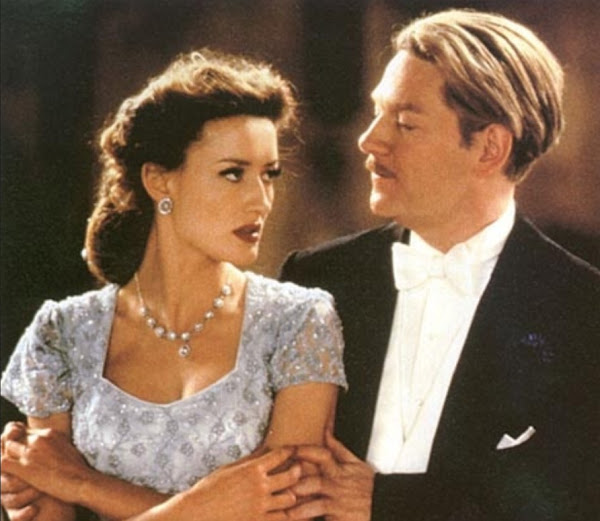Women Priests Assigning Penance in Love's Labor's Lost?
In Shakespeare's play, Love's Labor's Lost, King Ferdinand of Navarre and his friends confess in the end that they made mistakes, or "sins" in the words of Lord Berowne.
They had taken an oath to avoid the company of women, so when the Princess of France and her ladies in waiting show up, one of their sins is a failure of hospitality, forcing the women to camp out in tents outside the castle instead of welcoming them in.
Another of their sins is that they quickly break their oath by falling in love with the women.
They also make fools of themselves by dressing up as "Muscovites, or Russians" to profess their love, but the women exchange some articles of clothing to fool them (the fools!).
The women confess their deception but blame the men, and the men confess their broken oaths and foolish behavior, but blame the women's beauty and heavenly eyes. The men have more to confess....
If it seems a bit like the Catholic sacrament of confession, it should: Shakespeare lived at a time when Catholic confession and the selling of indulgences was highly criticized, and the Protestant solution was to claim that only God forgives, not a priest, so one can confess one's sins in the private of one's room.
Fine. But without a priest-confessor (or another’s ears and voice), is it too easy to avoid being accountable, to avoid actually doing the work of repentance?
The princess of France tells King Ferdinand to go to a hermitage for a year (5.2) while she mourns the death of her father, and maybe she'll have him.
Berowne asks Rosaline for some labor of love: She says that she has heard how he uses his wit to cut others down, so she wants him to spend the year using his wit to humor the sick and dying, and thereby put his wit to better use (5.2). Replace a bad habit with a good one (or get rid of the bad one).
Yes, they assign a kind of penance, as priests do. Yes, they are women in patriarchies, but Shakespeare sometimes places female characters in roles parallel to famous male biblical figures: Portia in the courtroom scene in The Merchant of Venice (4.1) is like the stranger on the road to Emmaus whom the disciples do not recognize at first. Cordelia, dead in Lear's arms (5.3), is often noted to be like a Christ-figure in a reverse-gender Pieta.
For more on Shakespeare, confession, repentance, and forgiveness, see Sara Beckwith's book, Shakespeare and the Grammar of Forgiveness, which I discussed in an earlier post in May of 2020.
[Image via Cornell University Press. Fair use.] Beckwith deals especially with Measure for Measure, Pericles, Cymbeline, The Winter’s Tale, and The Tempest, but her insights also apply here to Love's Labor's Lost - and in fact also to Hamlet, which may be the focus of a future blog post.
~~~
MY RECENT POSTS ON LOVE'S LABOR'S LOST:
5. Love's Labor's Lost, Arcangela Tarabotti, and Mirrors of Difference - November 16, 2021
4. Elizabeth I, Popes, & Ferdinando I de' Medici in Love's Labor's Lost - November 9, 2021
3. Women Priests Assigning Penance in Love's Labor's Lost? - November 2, 2021
2. Good & Grace from Evil & Sin in Love's Labor's Lost & Henry V - October 24, 2021
1. Begging & Poor (& Chastity & Pregnancy) in Love's Labour's Lost (1594-1597) - October 12, 2021 (this #1 post was also part of another series)
~~~~~~~~~~~~~~~~~~~~~~~~
Thanks for reading! My current project is a book tentatively titled Hamlet’s Bible, about biblical allusions and plot echoes in Hamlet.
Below is a link to a list of some of my top posts (“greatest hits”), including a description of my book project (last item on the list):
https://pauladrianfried.blogspot.com/2019/12/top-20-hamlet-bible-posts.html
I post every week, so please visit as often as you like and consider subscribing.



Comments
Post a Comment